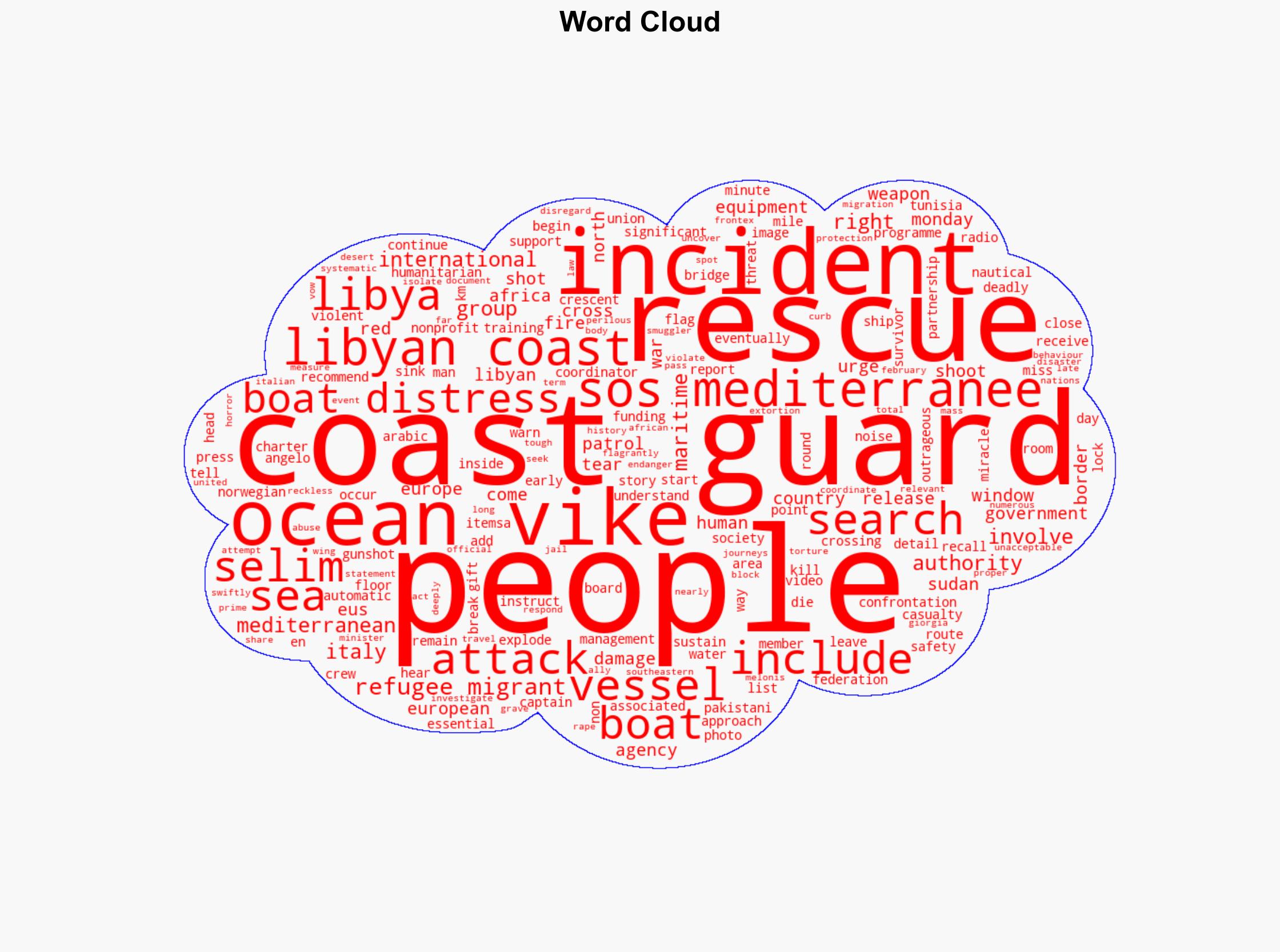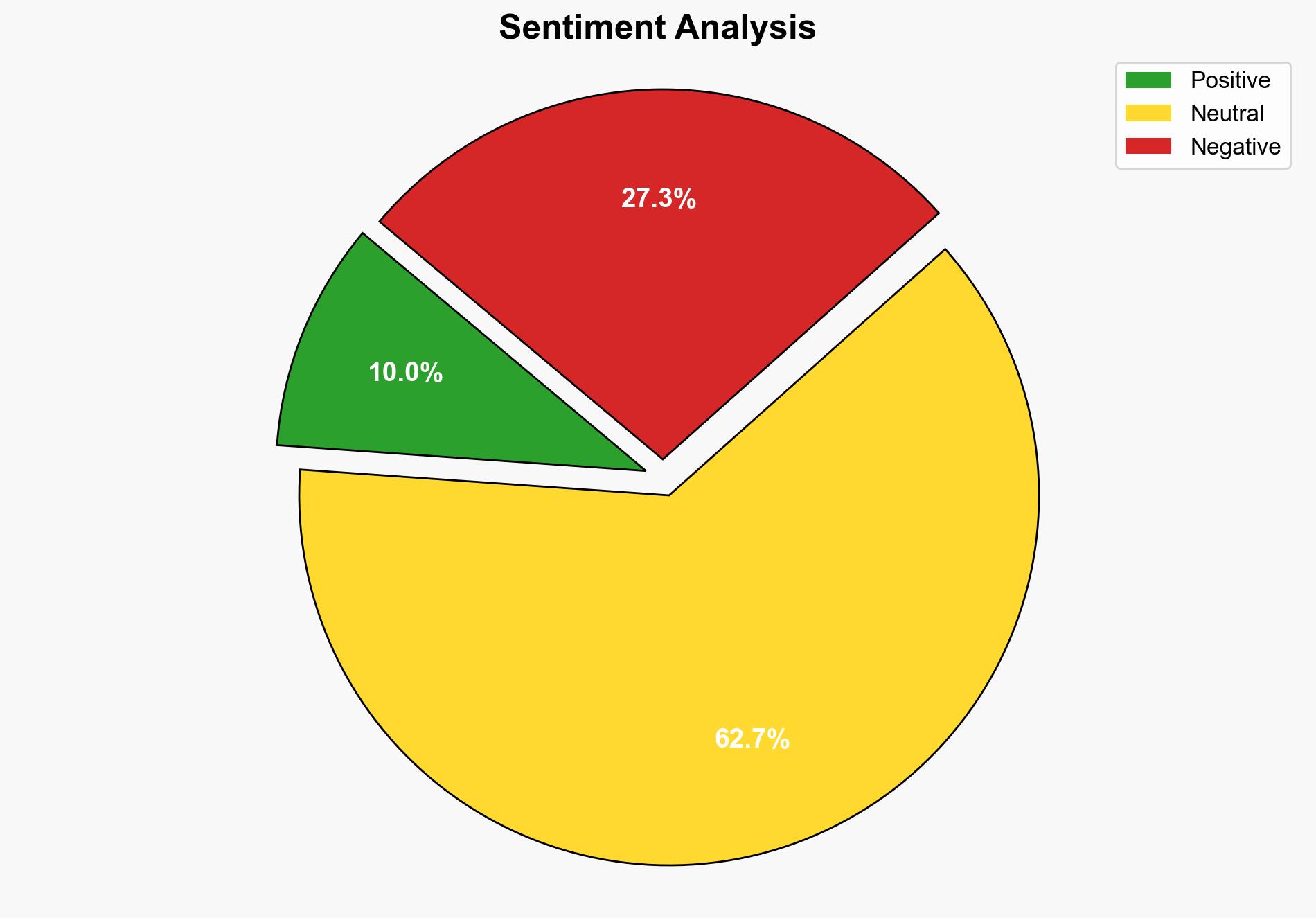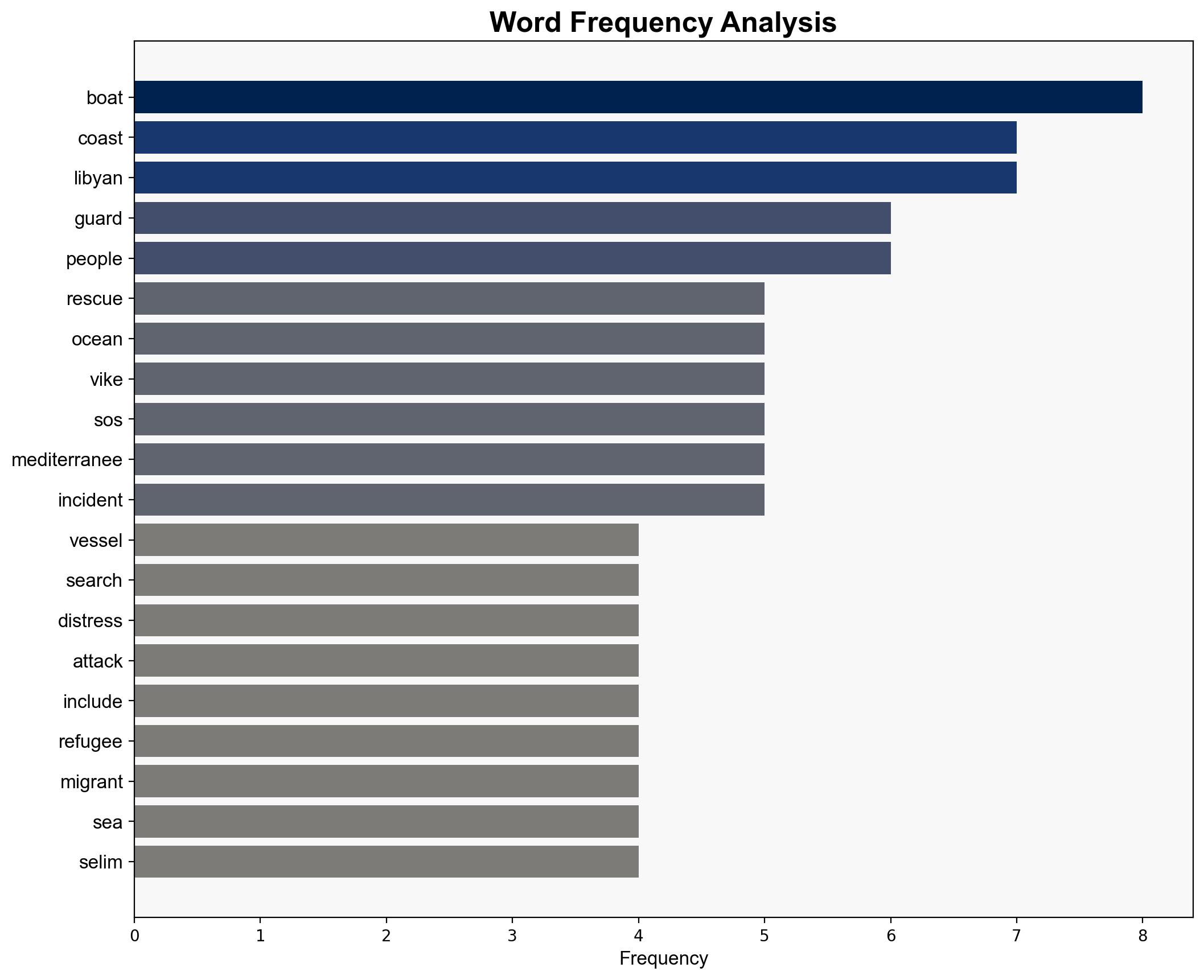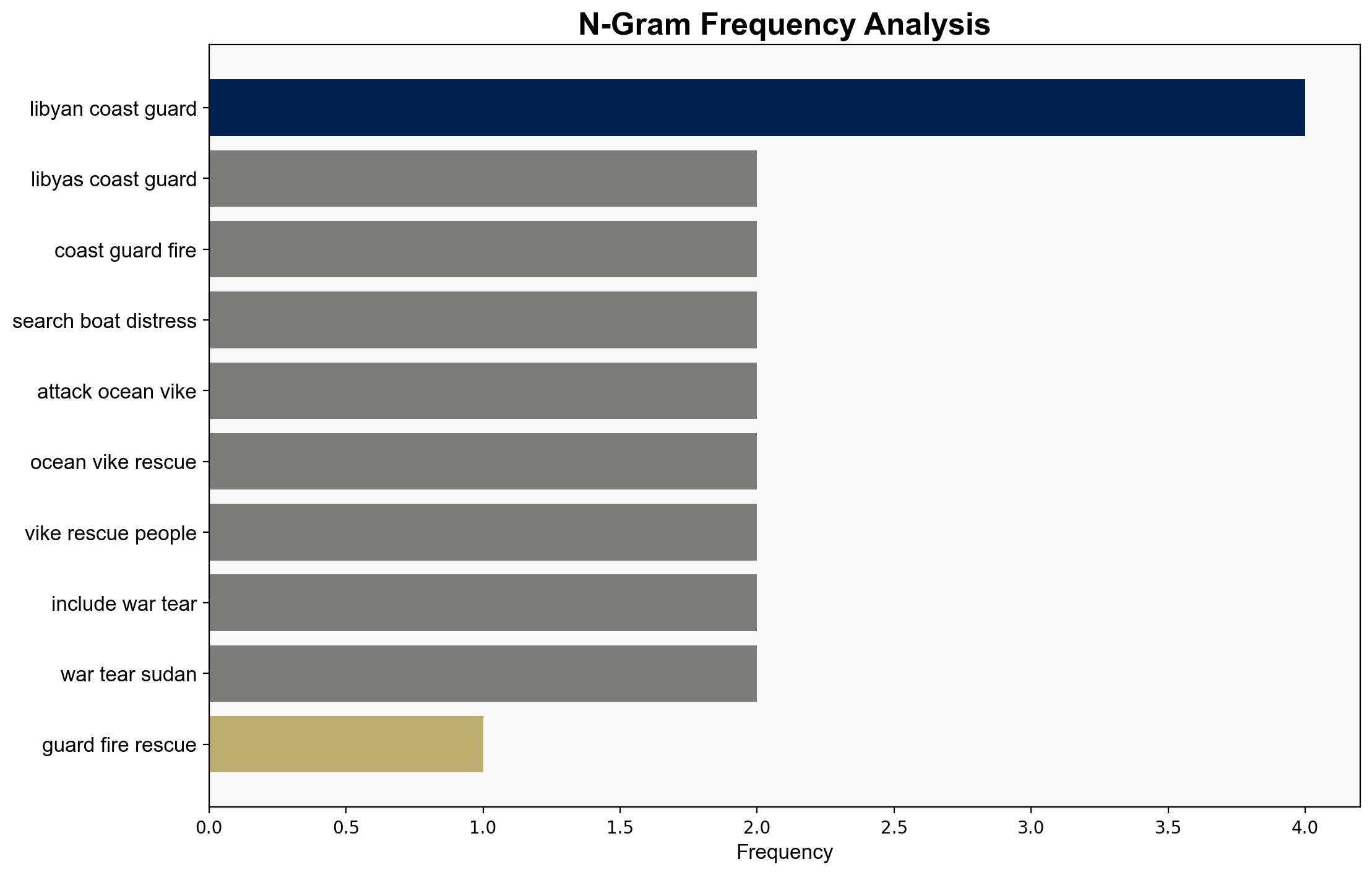Libyas coast guard fired upon rescue vessel searching for boat in distress – Al Jazeera English
Published on: 2025-08-25
Intelligence Report: Libyas coast guard fired upon rescue vessel searching for boat in distress – Al Jazeera English
1. BLUF (Bottom Line Up Front)
The most supported hypothesis is that the Libyan coast guard’s actions were a deliberate attempt to deter European rescue operations, potentially influenced by EU border management policies. Confidence in this assessment is moderate due to limited direct evidence. Recommended action includes diplomatic engagement with Libyan authorities and a review of EU support programs to ensure compliance with international maritime law.
2. Competing Hypotheses
1. **Deliberate Deterrence**: The Libyan coast guard intentionally fired upon the rescue vessel to deter European NGOs from conducting rescue operations, influenced by EU border management policies.
2. **Miscommunication and Escalation**: The incident resulted from a miscommunication or misunderstanding between the Libyan coast guard and the rescue vessel, leading to an unintended escalation.
Using ACH 2.0, the deliberate deterrence hypothesis is better supported by the historical context of EU funding and training of the Libyan coast guard and previous incidents of aggressive behavior. The miscommunication hypothesis lacks substantial evidence and does not account for the reported use of automatic weapons and threats.
3. Key Assumptions and Red Flags
– **Assumptions**: The analysis assumes that the Libyan coast guard’s actions are influenced by EU policies and that the reported details of the incident are accurate.
– **Red Flags**: The lack of independent verification of the incident details and potential bias in reporting from SOS Mediterranee.
– **Blind Spots**: Limited information on the internal decision-making processes of the Libyan coast guard.
4. Implications and Strategic Risks
The incident could escalate tensions between Libya and European countries, potentially leading to a reduction in rescue operations, increasing the risk of humanitarian crises in the Mediterranean. It may also strain EU-Libya relations and impact ongoing border management collaborations.
5. Recommendations and Outlook
- Engage diplomatically with Libyan authorities to clarify the incident and reinforce adherence to international maritime law.
- Review and potentially recalibrate EU support programs to the Libyan coast guard to ensure they align with humanitarian objectives.
- Scenario Projections:
- **Best Case**: Improved cooperation between Libya and EU entities, leading to safer rescue operations.
- **Worst Case**: Further aggressive incidents, leading to international condemnation and reduced rescue efforts.
- **Most Likely**: Continued tension with periodic incidents, requiring ongoing diplomatic management.
6. Key Individuals and Entities
– **SOS Mediterranee**: Nonprofit organization involved in the rescue operation.
– **Libyan Coast Guard**: Entity responsible for the attack.
– **Giorgia Meloni**: Italian Prime Minister, representing the Italian government’s stance on migration.
7. Thematic Tags
national security threats, regional focus, humanitarian crisis, EU-Libya relations




